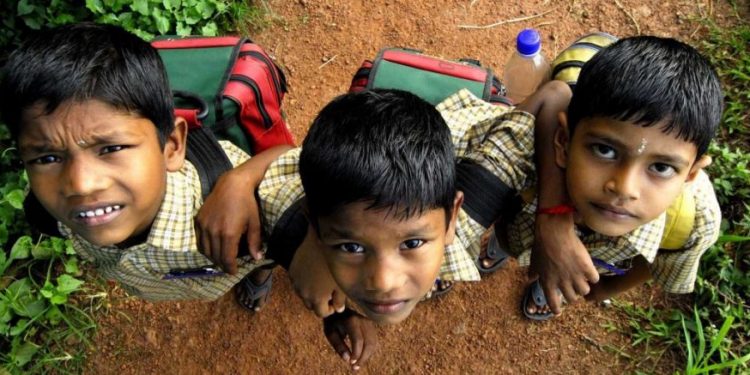Consider the following statements describing our moral judgments: If a child is hungry, or hurt, the child’s parents or friends have a greater obligation to help than a stranger does. If we have to choose between saving the life of a human or that of a dog – or even many dogs – we ought to save the human.
Almost everyone agrees with these moral judgements, right? Wrong. A sizable group of people disagree. In the past two years, separate studies have compared adults’ views on these two issues with those of children between the ages of five and ten years, and found that their responses differed significantly.
Both studies seek to shed light on the formation of our moral judgements, and so to help us to answer one of the Big Questions about morality: is it rooted primarily in our culture, or is it innate?
When anthropologists spread across the globe in the nineteenth and early twentieth centuries, their reports emphasised the variation in moral beliefs between societies. As a result, the view that morality is a cultural phenomenon became dominant.
In the 1970s, however, evolutionary theorists like EO Wilson and Richard Dawkins began to push back against cultural explanations of morality. A great deal of human behaviour, they argued, could be explained by genetic selection, not necessarily aimed at the preservation of each individual organism, but rather at the preservation of genes that are likely be shared, not only with offspring, but also with other kin. Thus, moral rules imposing stronger obligations to assist kin rather than strangers would have evolved, along with other rules encouraging reciprocal, mutually beneficial relationships.
The evolutionary view of the origins of morality has a lot going for it, including the discovery of precursors of human morality in other social mammals, some of whom, as Frans de Waal showed, clearly have a sense of fairness. And this sense can be more developed than just, “you scratch (= pick the lice from) my back and I’ll scratch yours.” It can mean demanding something rather like equal pay for equal work: “I’m not accepting a food pellet for doing the same task that you gave that other monkey a grape for doing!”
Evolutionary theory does, however, have great difficulty in explaining the idea that we have obligations to come to the aid of strangers. In my book The Expanding Circle, I accepted the evolutionary explanation of the basis of morality, but supplemented it by arguing that our capacity to reason does more than enable us to survive and reproduce: it also enables us to take a universal perspective from which we see that strangers are like us, and disregarding their needs is wrong.
Children certainly seem to think so. One of the two studies, led by Julia Marshall, a postdoctoral fellow at Boston College, shows that children between five and ten years of age say that if a child is hungry or hurt, a stranger has an obligation to help them. Older children and adults, by contrast, are more likely to differentiate between strangers, who don’t have to help, and parents or friends, who do.
The study was carried out in Germany, India, Japan, Uganda, and the United States, and in all these countries, younger children thought that strangers ought to help. The main cultural difference found is that in India, Japan, and Uganda, participants gave less weight to the differences between parents, friends, and strangers than they did in Germany and the United States. In Uganda, in fact, older children were even more inclined than younger children to regard friends and strangers as being obliged to help.
The study of priorities regarding saving a human or animals, led by Matti Wilks, a lecturer at the University of Edinburgh, also showed that children aged 5-9 take a broader view than adults. But in this case, it was a broader view of the value of life. Whereas almost all adults chose to save one human rather than as many as a hundred dogs or pigs, many children gave as much weight to saving a dog as they did to saving a human, and although the children valued dogs more than pigs, the majority still chose to save ten pigs rather than one human.
This may shed some light on why some children raised to eat meat refuse to eat it after they discover that meat is the flesh of an animal who has been killed. Both studies suggest that young children have broad moral sensitivities, both in terms of who should help someone in need, and in terms of the range of beings for whom they are concerned. The studies also indicate that in most cultures, these sensitivities are narrowed during the child’s development. Does this narrowing result from the children’s upbringing and cultural immersion, or could it be that the children revise their judgements in the light of greater knowledge of the world? We don’t yet have the answer.
The studies have something else in common: the co-authorship of Paul Bloom, a professor of psychology at the University of Toronto. Bloom has acknowledged that the findings of both studies challenge claims he made in his book Just Babies. That is of course laudable. It is only by remaining open to the evidence that we may eventually untangle the roles culture, biology, and our capacity to reason play in the formation of our moral judgements.
The writer is Professor of Bioethics at Princeton University. ©Project Syndicate






































